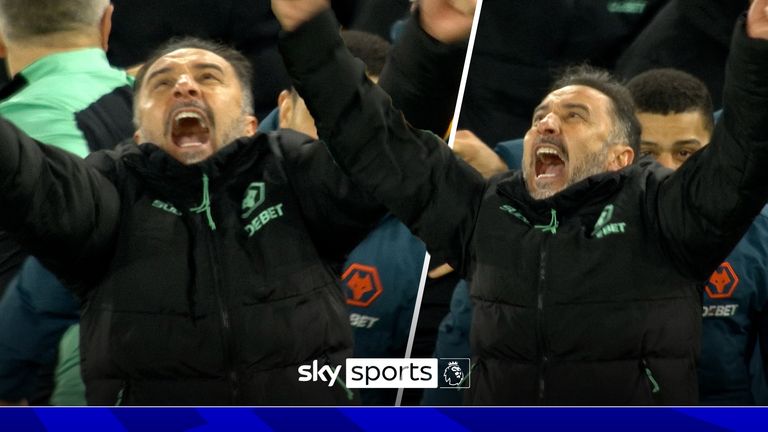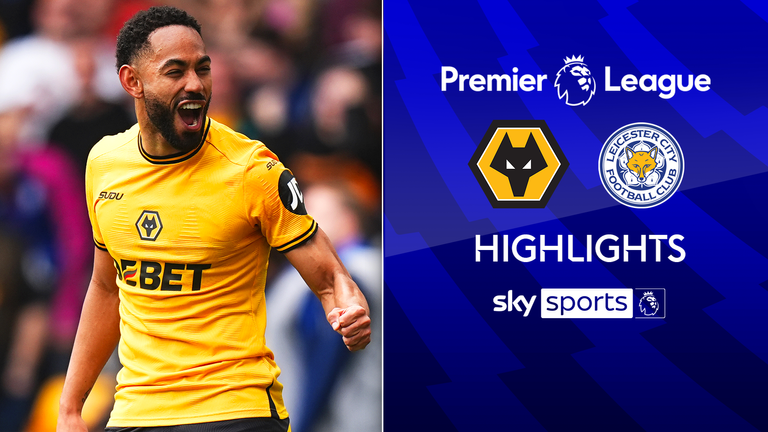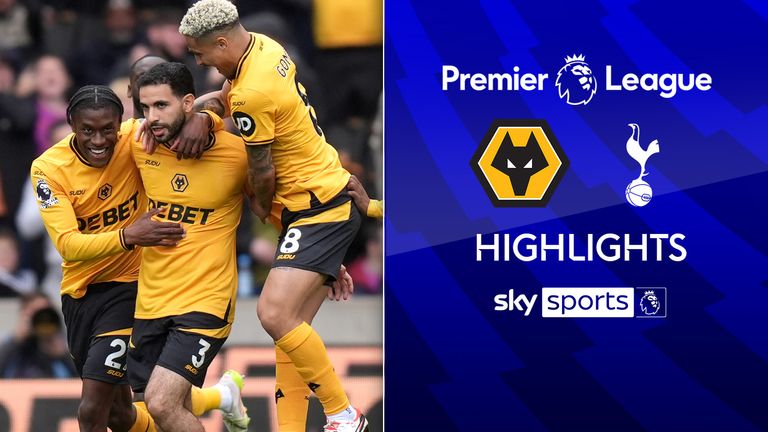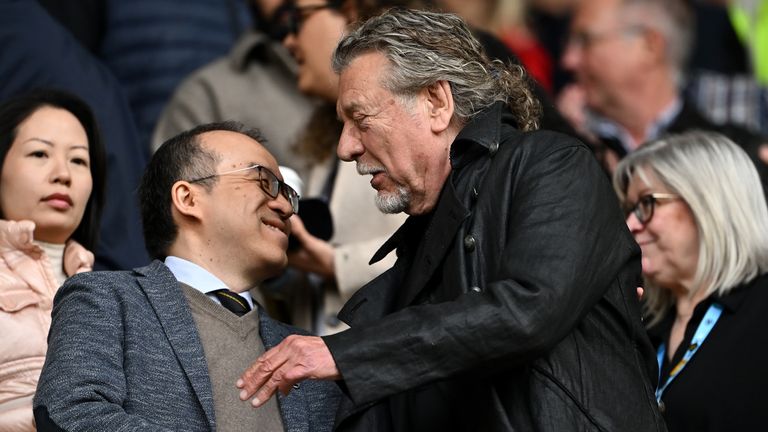
The appointment of Vitor Pereira was the obvious turning point in Wolves’ strange season, but there was another. The Portuguese had lost four Premier League games in a row to leave Wolves still in the relegation zone as the end of January approached.
A meeting was called for January 28th. The Inn at Shipley – a pub, fittingly, given Pereira’s penchant for a pint – played host to a full and frank discussion between chairman Jeff Shi and four of his trusted lieutenants. Informally, Shi dubbed it the war committee.
Along with sporting director Matt Hobbs, head of football operations Matt Wild, head of high performance Phil Hayward and communications director Max Fitzgerald, they discussed what was going wrong and how it might be put right. It felt like therapy.
Privately, Shi would describe this winter as the lowest point in his nine years at Wolves. For Hobbs, who remains grateful to O’Neil for getting Wolves out of a hole on the eve of the previous season, it was, by his own admission, a humbling experience.
Both men set about righting the wrongs, resetting the club’s culture.
This is the story of one big decision – the appointment of Pereira – but also dozens of little ones that have helped turn around Wolves’ fortunes, setting them on a path to picking up six wins in a row in the top division for the first time in 55 years.
The first task was to instil the discipline that had been lost in those alarming final days under O’Neil. Most conspicuously, there had been the sight of Mario Lemina – the captain – in open dispute with colleagues on the pitch after a defeat to West Ham.
Against Ipswich, Matheus Cunha’s bizarre loss of control, removing someone’s glasses, led to a suspension. “At the end of the previous regime, it felt quite negative, quite chaotic,” says one Wolves insider. “That is not a good environment for anyone to work.”
It was that negativity that had to change. O’Neil, perhaps in an attempt to protect his own reputation, had suggested that Wolves had only three proven Premier League players. Even subconsciously, some wondered, how would such talk impact the team?
Pereira brought a different mentality, reassuring those above him that the recruitment had not been so bad and that this could be a top-half team. The focus switched from what players could not do to what they could and how best to showcase those skills.
“Maybe we did not need to change formation every week, tweaking the press,” says another Wolves figure who saw the preparations change. “We spent so much time focused on the opposition and how to stop them, we ended up not having an identity.”
This shift in mentality was all Pereira but the committee decided to lean into it, working to remove the negativity that had seeped into the thinking. The plan was to create a no-excuses culture, eliminating problems so that players could not blame it all on that.
Some of the changes were minor and those responsible would concede they should have been addressed sooner. The need for a new coffee machine in the canteen, for example. Others were more imaginative as Wolves did everything to alter the mood.
At the training ground, players are greeted by the sight of their latest goals and the celebrations that went with them, inspiring imagery that is updated much more regularly because there is a dedicated content creator for the players, not just the fans.
Birthday graphics are on display when players walk into the building, something Yerson Mosquera, recovering from long-term injury, is known to have appreciated. The focus of the imagery even shifts to those doing rehabilitation when those playing have a rest day.
The lighting in the changing room is now specially designed to shift the body clock for evening games, optimising the wavelength of the light. There is science behind the initiative instigated by head of performance Hayward and embraced by Pereira.
The little touches are repeated at Molineux, where screens above the changing-room pegs were playing clips of the goals by the time that the players left the pitch after their 3-0 win over Leicester recently. Players even get to choose the music they warm up to.
Nelson Semedo, Wolves’ captain since the Lemina debacle, has not only been a calm head but an active figure in ensuring the details are right. He works with the club as part of a redoubling of player care efforts, organising various grills and parties for the squad.
There is a Louis Vuitton pop-up event planned for players’ partners. This might all sound like pampering but internally it is seen as an attempt to create the feeling that the club is geared towards helping players – and it comes with more demands than before.
Pereira has brought a seriousness to the preparations, reintroducing hotel stays before home games, rather than the relatively relaxed routine of players reporting separately. That too has demanded a response in kind, upping the attention to detail.
The mattresses at Wolves’ hotel of choice were improved, while a lounge was set up onsite to ensure there would be no boredom. As well as dart boards and pool tables, the IT team increased the broadband speeds in the hotel so that gaming was an option.
One insider sums it up succinctly. “Vitor just came in and knew what everything had to look like.” He raised expectations and understood it was not all about football. It is no surprise there is more discipline and connection on the pitch now there is more off it.
Inside the club, there is a belief that the impact of a more constructive dialogue is already being felt. There was a concern when Emmanuel Agbadou was injured against Liverpool that he had initially elected to play on, potentially exacerbating the issue.
Players were swiftly encouraged to speak up in such situations, communicate better and have an open dialogue with each other. Marshall Munetsi subsequently flagged a strain after scoring against Everton and came off at half-time. Problem averted.
A similar thing happened with Joao Gomes, who had insisted on staying on the pitch while on a yellow card against Arsenal and was then sent off. Pereira took the blame for that one and has been particularly proactive in removing his booked players ever since.
“We are all trying to be more proactive, not waiting for the problems to happen,” says one Wolves executive. With that in mind, the intention is for the management meetings to continue and the ambition is that this cultural change at Molineux is here to stay.
The furore over Wolves Women, and the call not to register them for the Championship if promoted, was a reminder of its importance. The feeling is that if this culture of openness had been in place a year ago, it would have been handled very differently.
Likewise, the club is looking at how the departures of popular players are managed. It still rankles with supporters that there was no chance to say goodbye to Joao Moutinho. More recently, the exits of Lemina and Craig Dawson were far from ideal.
It is a subject that will be in the spotlight again soon given that Semedo is out of contract in the summer and Cunha is expected to be a target for big clubs. After a year which has been one long exercise in crisis management, they should be prepared.
There will be more challenges, of course. But there is a conviction now that Wolves are a more robust entity because of their travails this time around and an understanding that it is those clubs that can address their issues amid the storm that are able to weather it.
As one key figure puts it: “Sometimes you need some trouble to make you realise you need to evolve.” Symbolically, Shi will give up his office at the training ground this summer to allow additional space for a new players’ lounge. Lessons, it seems, have been learned.
This news was originally published on this post .











Be the first to leave a comment